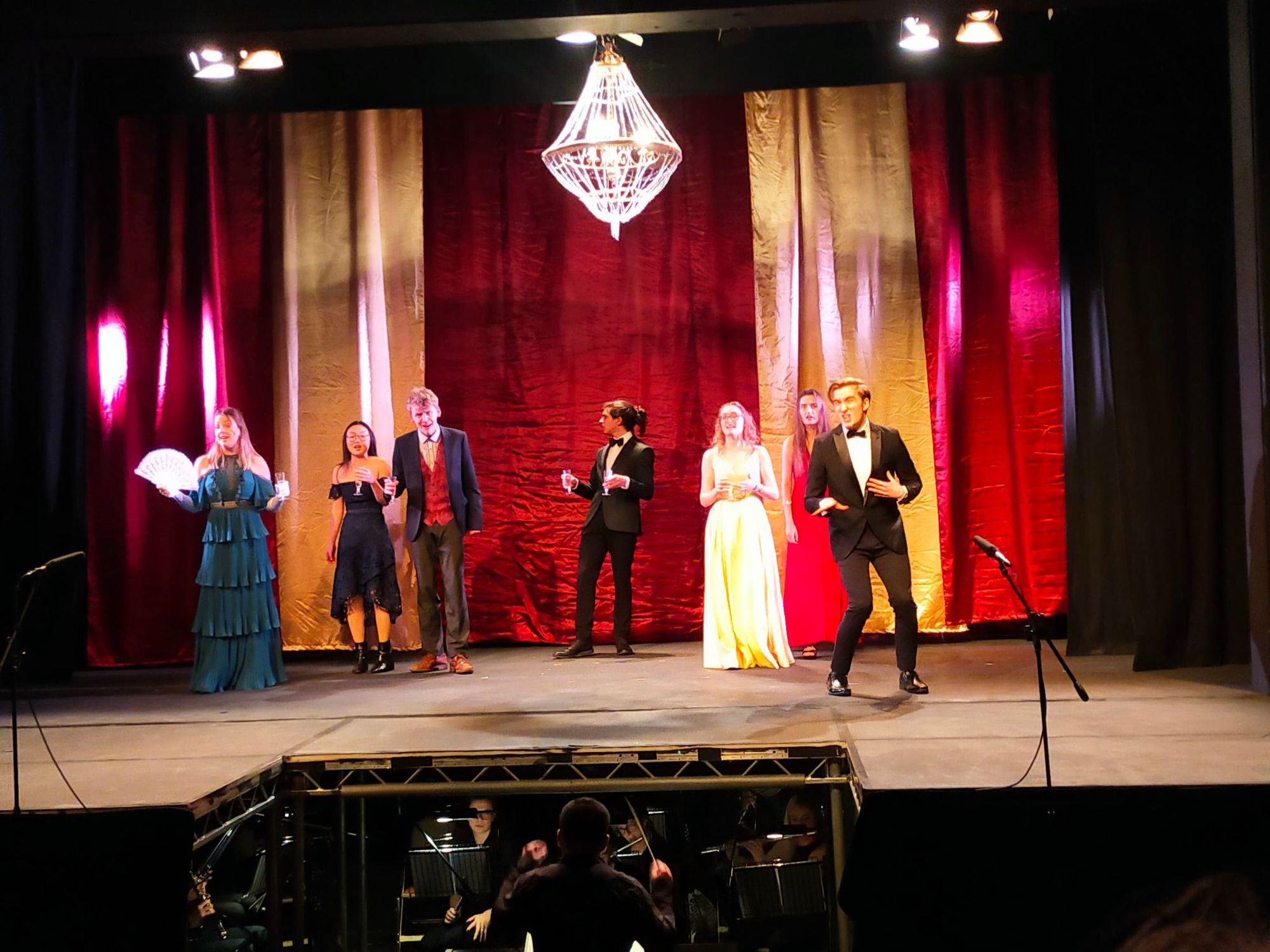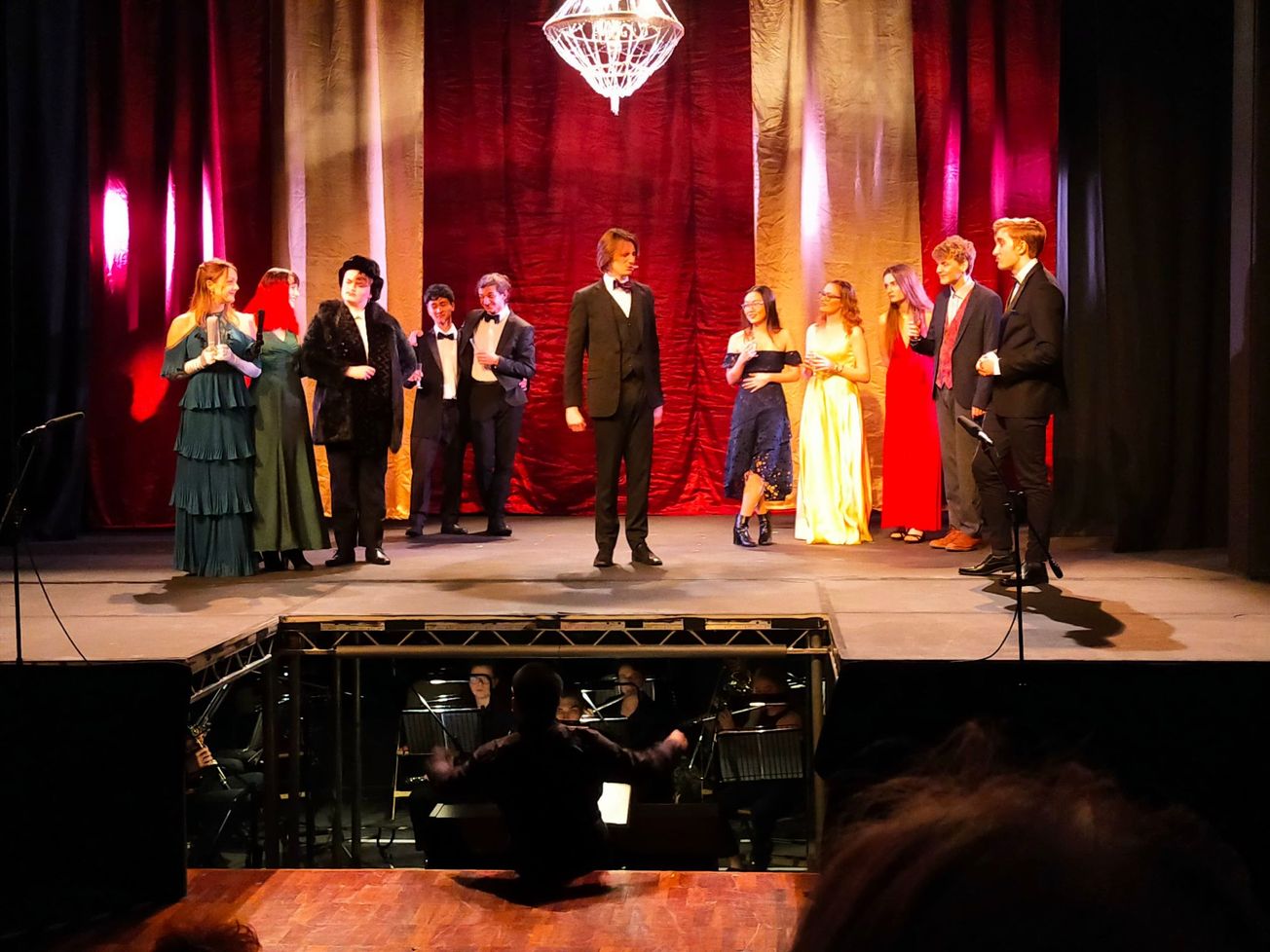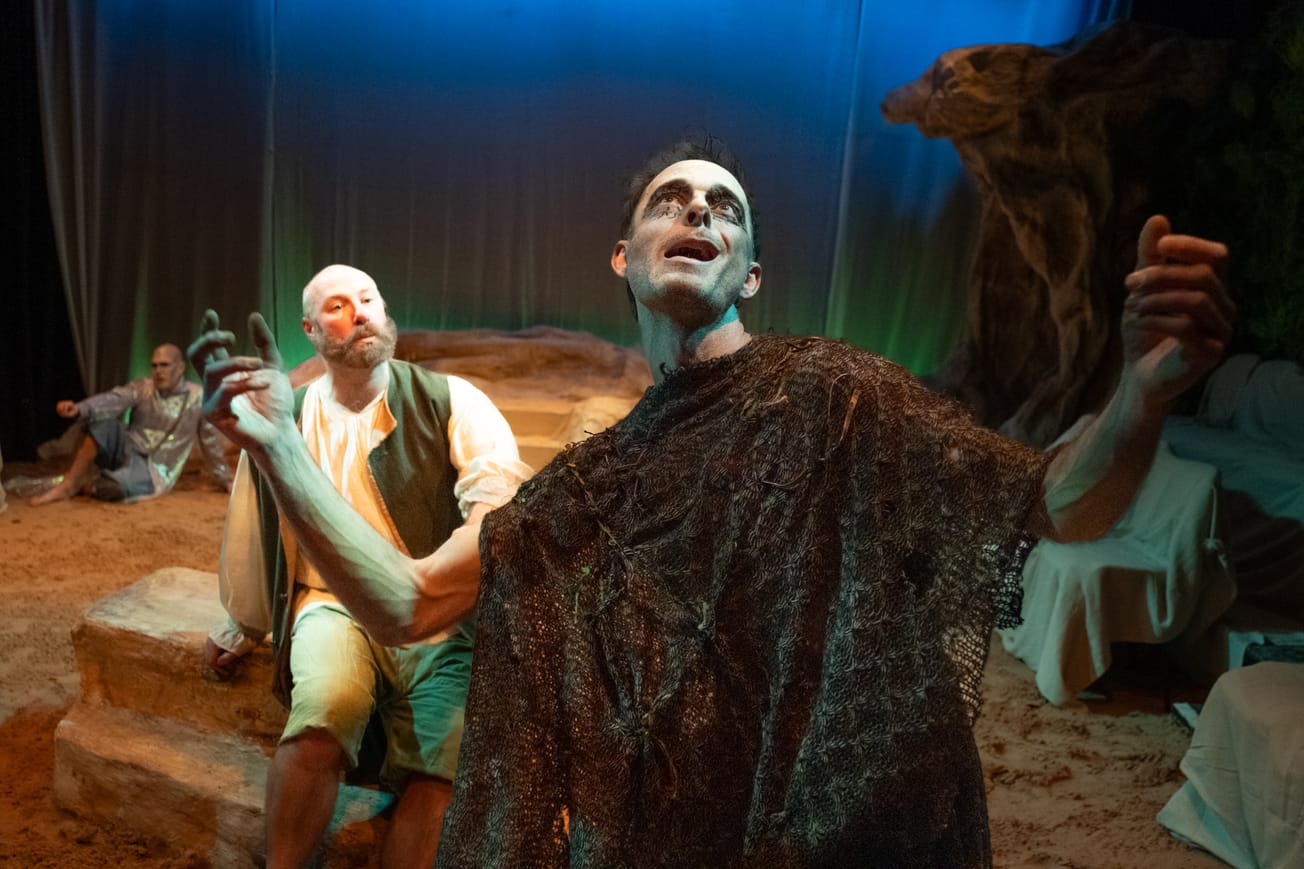By Milan Perera, Second Year English
It is said that much like his compatriot of immortal fame (W.A Mozart), Johann Strauss II could not have written a bad tune, even if he had tried. This claim is totally justified considering the vast body of works with sinuous and hummable melodies that demands the highest technical dexterity. Johann Strauss’ evergreen operetta, ‘Die Fledermaus’, like his waltzes, is bursting with effervescence, sparkle, and elegance like a freshly popped bottle of Riesling.
The operetta premiered on 5 April 1874 at Theater an der Wien in Vienna, not without its fair share of controversy, as the conservative society of Vienna was appalled by the fact that a theatre spectacle of such frivolity could be staged during the Easter observances. The façade of elegance, jollity and effervescence conceals a dark web of revenge, lust, hedonism, and deception.
Walter Hall’s production of ‘Die Fledermaus’ captures the ebullience of the Viennese Society of Fin de Siècle and the rip-roaring humour of Johann Strauss operettas. The dynamic ensemble of Bristol University Operatic Society responded to the challenge with panache that pulled all the stops.
Aaron Prewer-Jenkinson stepped into the boots of von Eisenstein with ease. The timbre of his voice was warm and bright which perfectly captures the urban sophistication of Eisenstein, embellished with his debonair demeanour.
Imogen Lock perfectly captured the beguiling persona of Rosalinda to a tee with the lyrical warmth of her voice. Being no stranger to playing demanding roles such as Dido in ‘Dido and Aeneas’ and Pamina in ‘Magic Flute’, Lock relished in the challenge of channelling the refinement and duplicity of Rosalinda.
Kenneth de Leon’s rendition as the sentimental opera singer who is madly in love with a married woman was replete with naïveté and charm. The recitative passages with a heavy Italian accent never failed to generate peals of laughter. The magnificently versatile Charlotte du Can breathed life into the role of Ida while the portrayal of Dr. Falke by Chephren Parker managed to achieve the perfect equilibrium of charm and guile of someone hellbent on revenge.

Io Limmer who directed the autumn production of ‘Iolanthe’ to critical acclaim, proved to be equally at home on stage playing a mercurial rendition of Prince Orlofsky. The ‘Champagne Song’ sung by the Prince at the masked ball was full of verve and vitality. But what a superb BOpS debut it has been for Nel Wilmer who played the role of Adele with ease. Her portrayal of Adele was both sassy and spirited as ably demonstrated with her flawless interpretation of ‘Mein Herr Marquis’ also known as the ‘Laughing Song’ that was brimming with coloratura gymnastics.
James Ward who plays Frank, seemed to have perfected the art of playing men of authority as he had demonstrated in the production of ‘Iolanthe’ where he played the Lord Chancellor. His towering presence and the booming velvety baritone voice seemed to fill the theatre each time he burst into a number. His deadpan humour was a further embellishment to an already polished performance.
The audience erupted into a roaring laughter when Dan Alexander who plays the drunken prison guard, Frosch appeared on the scene. His cockney slang and the slapstick elements worked a treat with the crowd.
‘The Cabaret of Love’ by Music Theatre Bristol @ The Room Above
Virtual Reality: the future of theatre?
William Thompson who played the lawyer, Blind had his Operatic Society debut where he rose up to the challenge. The main cast was superbly backed by the chorus which featured Andrea Chong, Athena Diamond, Helen Taylor, Peter Nethsingha and Rebecca Coleman. Zhe Yang conducted the proceedings for the evening with lively tempi and fine balance between stage and pit. Fergus McGregor’s music direction radiated both panache and finesse as required.
Set design by Kat Dapré was sumptuous and detailed, especially as featured in the masked ball. The English translation by Josh Dixon managed to capture the humour and wit of Johann Strauss Jr. while presenting the text to a contemporary, English speaking audience. Naseem Alavi’s carefully conceived costume designs brought an added layer of authenticity to the stellar cast as they slipped into the characters of Belle Époque.
Juliette Wolsey proved to be a deft producer as every aspect of the production was meticulously addressed. This sparkling, funny and witty production by the BOpS kept the audiences thoroughly enthralled for the whole evening to which they responded with a raucous standing ovation.
Featured Image: Milan Perera | Epigram
What student theatre have you seen this term?








